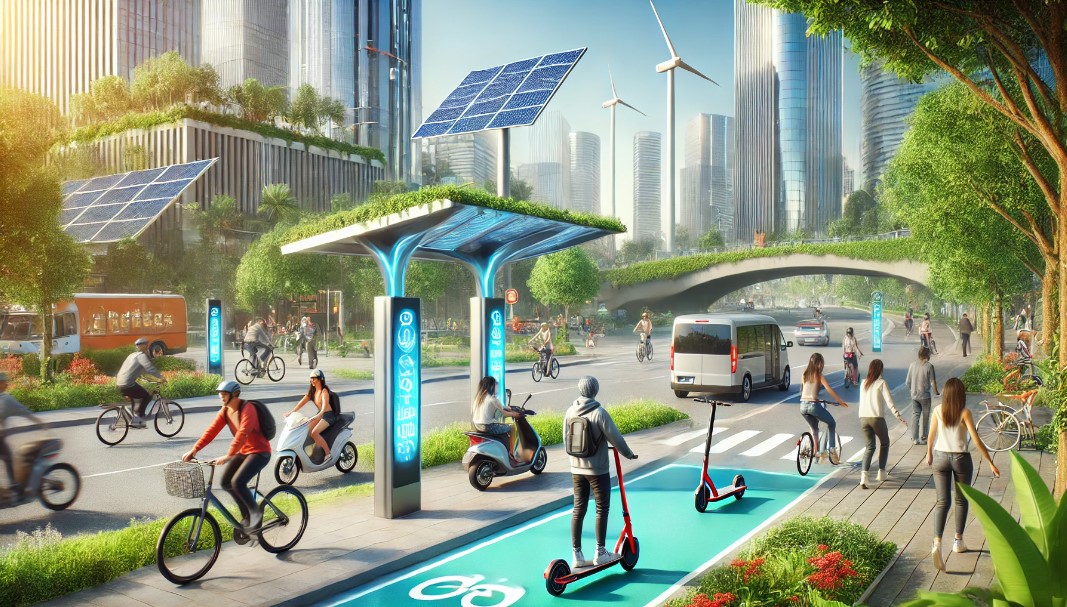The market for electric bicycles and scooters is growing rapidly, driven by innovation and the need for sustainability.
The market for electric bicycles and scooters has experienced impressive growth in recent years, and forecasts suggest that this trend will continue in the future. According to market analysis, the global market for electric bicycles will exceed 41 million units in 2023. Experts predict that this figure will double by 2030, demonstrating the rapid and steady expansion of this market.
What drives the rapid growth?
The popularity of electric vehicles did not come out of nowhere. Their development reflects changing consumer habits and preferences. The main reasons why electric bicycles and scooters are gaining attention are:
- Convenience and cost-efficiency. Electric bikes and scooters allow you to reach your destination more efficiently and quickly, avoiding traffic congestion and reducing transport costs.
- Greening. These vehicles do not use fossil fuels and do not emit carbon dioxide, contributing to reducing climate change.
- Technological progress. Advances in battery technology ensure longer battery life, greater range and safety.
The long life of Li-ION batteries depends on maintaining the correct charge and discharge levels, proper use and proper storage conditions.
Market relevance of batteries
Batteries are at the heart of technological progress in electric vehicles. They account for 40-50% of the cost of an electric bike or scooter and directly determine the most important parameters of these devices – range, charging time and safety. Modern lithium-ion batteries dominate the market because they are lightweight, durable and have a high energy density.
Manufacturers are actively investing in innovative solutions to reduce the cost of batteries, increase their efficiency and ensure safety. This is important both because of consumer demand and because of increasing international standards and regulations focused on a more sustainable future.
Market trends and future prospects
The market for electric bicycles and scooters is going through a period of innovation. Some of the most prominent trends:
- Urban mobility solutions. More and more cities are investing in infrastructure to accommodate electric vehicles, such as cycle paths and charging stations.
- Development of sharing platforms. Electric scooters and bicycles have become an integral part of the sharing economy, making them more accessible to consumers.
- Changing regulations. Governments around the world are encouraging the shift to environmentally friendly vehicles through subsidies and incentives for electric bikes and scooters.
Challenges and opportunities
The electric bicycle and scooter sector is a prime example of how technological advances and changing consumer needs can work together to shape the future of transport. This sector will undoubtedly remain one of the most important areas for sustainable transport solutions in the coming decades.
